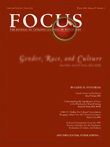Treatment of Bereavement-Related Major Depressive Episodes in Later Life: A Controlled Study of Acute and Continuation Treatment With Nortriptyline and Interpersonal Psychotherapy
Abstract
Objective: The authors tested the hypothesis that nortriptyline and interpersonal psychotherapy, alone and in combination, are superior to placebo in achieving remission of bereavement-related major depressive episodes. Method: Eighty subjects, aged 50 years and older, with major depressive episodes that began within 6 months before or 12 months after the loss of a spouse or significant other were randomly assigned to a 16-week double-blind trial of one of four treatment conditions: nortriptyline plus interpersonal psychotherapy (N=16), nortriptyline alone in a medication clinic (N=25), placebo plus interpersonal psychotherapy (N=17), or placebo alone in a medication clinic (N=22). The protocol required that the acute-phase double-blind treatment be ended after 8 weeks if Hamilton depression scale ratings had not improved by 50%. Remission was defined as a 17-item Hamilton scale score of 7 or lower for 3 consecutive weeks. Results: The rate of remission for nortriptyline plus interpersonal psychotherapy was 69% (N=11); for medication clinic, nortriptyline, 56% (N=14); for placebo plus interpersonal psychotherapy, 29% (N=5); and for medication clinic, placebo, 45% (N=10). In a generalized logit model, there was a significant effect of nortriptyline over placebo but no interpersonal psychotherapy effect and no nortriptyline-by-interpersonal psychotherapy interaction. Rates of all-cause attrition were lowest in the nortriptyline plus interpersonal psychotherapy group. Conclusions: Nortriptyline was superior to placebo in achieving remission of bereavement-related major depressive episodes. The combination of medication and psychotherapy was associated with the highest rate of treatment completion. These results support the use of pharmacologic treatment of major depressive episodes in the wake of a serious life stressor such as bereavement.



